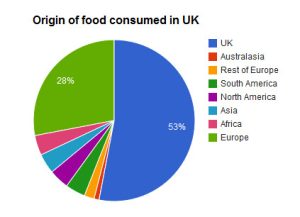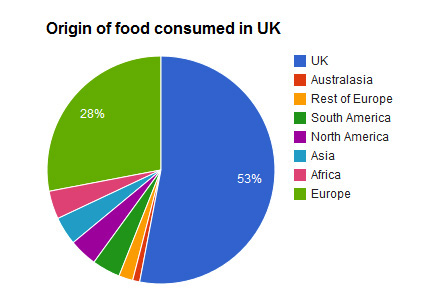
Introduction
The staffing crisis within UK food agencies is a pressing issue that demands immediate attention. The dedicated individuals within these agencies play a vital role in safeguarding food safety and standards, but their efforts are hindered by staffing shortages. In this article, we issue a call to action, urging collaborative efforts between government, industry, and stakeholders to address the staffing crisis and fortify UK food agencies. Together, we can ensure the continued protection of public health and the integrity of the food supply.
The Vital Role of Food Agencies
Food agencies serve as the guardians of food safety and quality. They are entrusted with responsibilities such as inspections, regulation, monitoring, and responding to food safety incidents, all with the aim of protecting public health and maintaining the integrity of the food supply.

The Current Staffing Crisis
The staffing crisis within UK food agencies has laid bare the profound challenges they face. Shortages of inspectors, lab analysts, and administrative personnel are affecting their operations and their ability to conduct essential functions.
The Impact on Food Safety
The shortage of personnel poses a real threat to food safety. Fewer inspections mean that potential risks in the food supply chain go unmonitored, making it more likely that contaminated or substandard food could reach consumers.
Compromised Regulatory Oversight
Regulatory oversight, a critical component of food standards, is also at risk due to staffing shortages. Insufficient personnel hinder the agencies’ capacity to enforce food safety standards, potentially leading to regulatory gaps and compliance issues within the industry.
Consumer Health and Safety Concerns
At the heart of this issue are the profound concerns for consumer health and safety. Delays in responding to food safety incidents due to inadequate staffing can result in more significant harm to consumers when foodborne illness outbreaks occur.
The Power of Collaboration
Collaboration is the cornerstone of addressing the staffing crisis within UK food agencies. Government bodies, the food industry, and stakeholders all have pivotal roles to play in finding solutions.
Government Initiatives
Government bodies should prioritize food agency funding and resources to address staffing shortages. They must also consider revising immigration policies and offering support for educational programs that nurture future talent.
Industry Involvement
The food industry holds a stake in the outcomes of food agency operations. Collaboration with food agencies can involve sharing best practices, supporting training programs, and advocating for the importance of food standards.
Stakeholder Engagement
Stakeholders, including consumers and advocacy groups, have a role to play in driving change. Their support and engagement can put pressure on government and industry to prioritize food agency staffing.
Immediate Measures
Immediate measures may involve reallocating existing resources, conducting recruitment drives, and optimizing workflow processes within food agencies. Collaborative efforts can streamline these measures.
Long-Term Strategies
Long-term strategies may encompass revised immigration policies, enhanced training programs, and expanded educational initiatives to nurture future talent. These efforts require sustained collaboration and commitment.
The Urgency of Action
The urgency of the staffing crisis within UK food agencies cannot be overstated. Protecting public health and the integrity of the food supply are non-negotiable priorities. Collaborative initiatives are the key to addressing this critical issue and fortifying food agencies to meet the challenges of today and tomorrow.

Conclusion
Collaborative efforts between government, industry, and stakeholders are the linchpin to addressing the staffing crisis within UK food agencies. These agencies play an indispensable role in protecting public health and the integrity of the food supply. Their effectiveness is hindered by staffing shortages, making the call to action imperative. By working together, we can fortify food agencies, ensuring they have the resources and personnel needed to carry out their essential functions. The safeguarding of food standards is not just a matter of regulation; it is a matter of public health and safety. Collaboration is the path to addressing this critical issue and upholding the standards that protect us all.










